Adapting Stephen King's Thinner: Time Has Done Few Favors To The 1996 Movie
Many Stephen King adaptations age well. Thinner is not one of them.
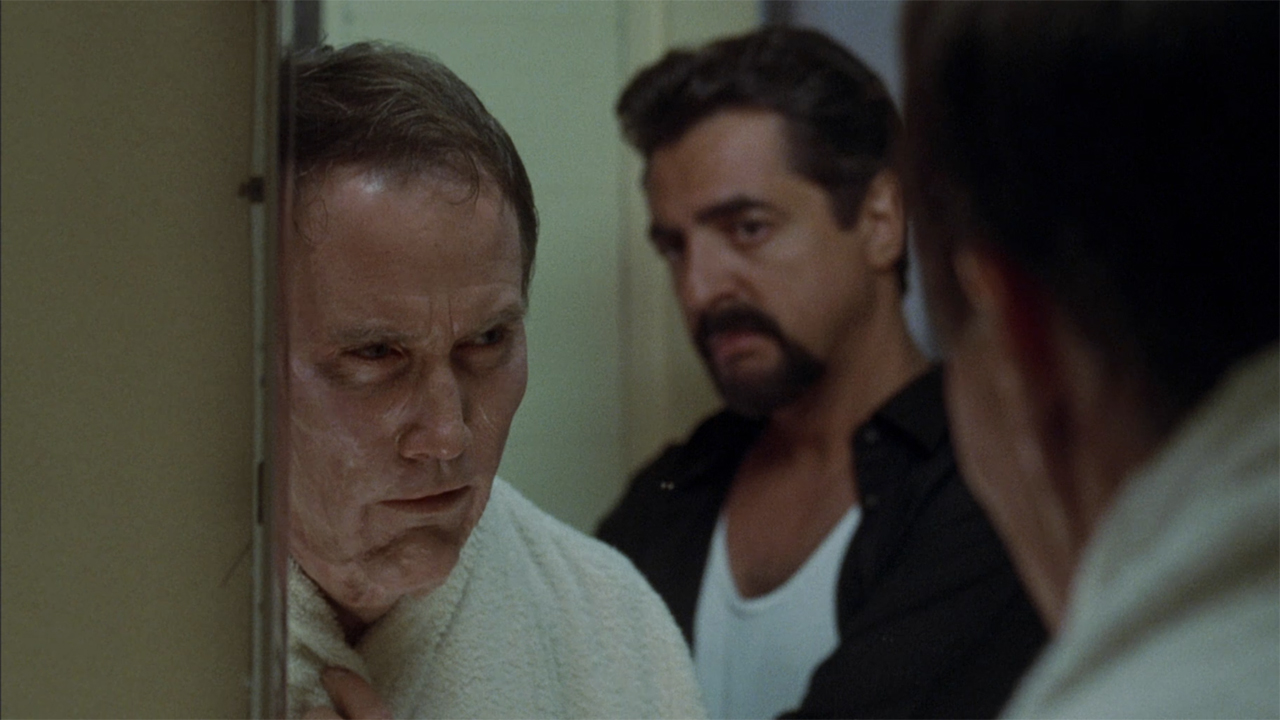
While the works of Stephen King have proven to have a seemingly endless shelf-life in Hollywood, the same cannot really be said about the writer’s famous alter ego. As noted in previous installments of this column, the pseudonym “Richard Bachman” was created by King as a way of working through a kind of professional identity crisis early in his career, as the author wasn’t sure if it was his name or the quality of his work that was perpetuating his popularity. That experiment came to a screeching halt in late 1984/early 1985 when Thinner was published and the reality behind the nom de plume (or, rather, the lack there of) was exposed. Two more Bachman books have been published since then –The Regulators and Blaze – but the author has acknowledged them as “trunk novels,” maintaining the history of the mid-1980s novel as Bachman’s final tome.
Now, Thinner not only has the distinction of being considered the ultimate novel by Richard Bachman, but it’s also the last text written by Stephen King under the pen name that has been adapted. Over the years there have been attempts to bring some of the other novels to the big screen – and there are presently on-going efforts to make new movies based on The Long Walk and The Running Man – but until those projects make their way through the full production cycle, Tom Holland’s tale of curses and extreme weight loss remains the most recent time that Bachman’s words were rendered in live-action. It’s a distinction that comes with certain implications, as the film is not precisely one of the most celebrated titles in the expansive King canon.
Following the revelation about the author’s real identity, Thinner’s rights were purchased by Laurel Entertainment co-founder Richard P. Rubinstein in the late 1980s, and initially Tom Holland (Child’s Play, Fright Night) was brought on to direct with author/screenwriter Michael McDowell (Beetlejuice) penning the script. The project ended up having a devil of a time getting made, as it was rejected by numerous studios, and over a five-and-a-half year period the script was rewritten by Holland somewhere in the neighborhood of 15 times (according to Creepshows by Stephen Jones). Fortunately for the production, Rubinstein and the director were able to finally get gears moving following the success of The Langoliers, as the film entered production in the Camden-Rockport area of Maine just three months after the time travel-centric miniseries aired on ABC.
Upon its release in theaters in late 1996, Thinner was panned by critics and considered a flop, falling out of the box office Top 10 just three weeks after its release, but 25 years later, is that evaluation worth reconsideration? That’s the question at the heart of this latest edition of Adapting Stephen King.
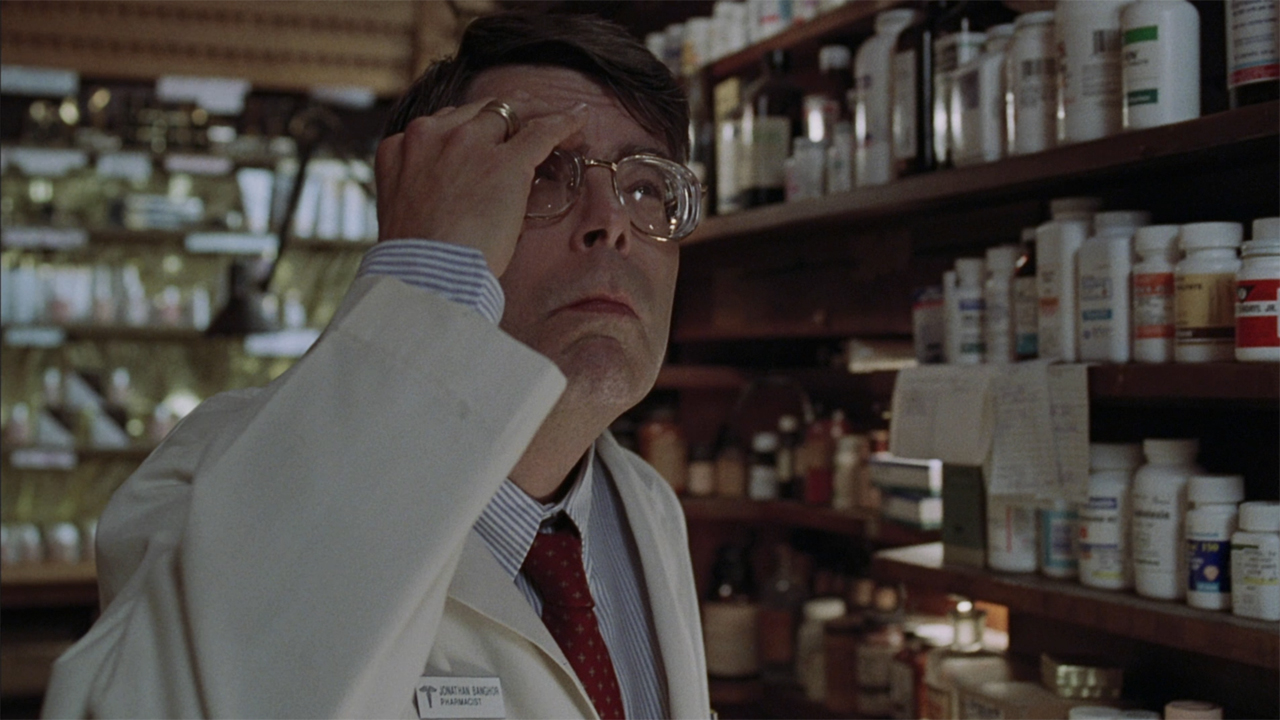
What Thinner Is About
In the 1980s, Stephen King was supporting a number of habits that were detrimental to his health. At this point it’s no secret that he was dealing with issues involving drug and alcohol abuse, not to mention that he was a heavy smoker, but also impacting his life was a mismanagement of his weight. According to a 1985 interview with the Washington Post, the 6’4” author got to a point where he weighed 236 pounds, and his doctor got real with him about making some alternative lifestyle choices because he had “entered heart attack country” (a line that he ultimately repurposed for his book.
Stephen King accepted the seriousness of the news, and made plans to take action – but at the same time the news generated a particular anger inside of him. Specifically, he recognized that his doctor’s message was delivered in an effort to aid him, but he also didn’t have a great appreciation for how the advice was essentially an authority figure telling him that he needed to make consequential changes to his life. Said King,
I... spent a very angry weekend off by myself. I thought about it, thought about how awful they were to make me do all these terrible things to save my life. I went and lost the weight, and pretty much quit smoking.
His methods for weight loss proved effective, but at the same time there was a strange mental emphasis on the word “loss.” As his physical existence became smaller, he began to imagine a scenario where a person might start shedding pounds without effort, eventually getting to a dangerous, emaciated state:
CINEMABLEND NEWSLETTER
Your Daily Blend of Entertainment News
Once the weight actually started to come off, I began to realize that I was attached to it somehow, that I didn't really want to lose it. I began to think about what would happen if somebody started to lose weight and couldn't stop.
The vehicle for such a circumstance saw Stephen King (as Richard Bachman) lean on a well-worn trope – “the gypsy curse” – and what unfurled from his mind was a novel that he views as both a horror story and an extremely dark, cynical comedy.
King’s hefty emotional surrogate in Thinner is Billy Halleck, a shady defense attorney who tips the scales at 246 pounds when he is first introduced… and that’s because he has already begun his epic and terrifying weight loss journey. He used to be over 250 pounds, but that was before he literally got away with murder.
On one fateful night, Billy was driving with his wife, Heidi, in the passenger seat, and, feeling amorous, she began to give him a handjob. Being swept up in the surprising romantic gesture, he stopped paying attention to the road and accidentally hit and killed an elderly Romani woman named Suzanne Lempke. Thanks to Billy’s friendship with police chief Duncan Hopley, and local judge Cary Rossington, no formal investigation was conducted, and perjury was committed in court to allow the protagonist to walk away from the clear-cut case of vehicular manslaughter without even a point on his license.
Naturally, this turn of events enrages Suzanne’s father, Tadzu Lempke, and he decided to get his own justice. He went to Billy Halleck, Duncan Hopley, and Cary Rossington doling out curses, and the one for Billy was delivered with a cheek caress and a single word: “Thinner.”
Billy, not being one to take curses seriously, is at first elated to see that he is losing weight despite not making any changes to his voracious eating, but as the numbers on the scale continue to rapidly fall without any sign of slowing, fear and anger dominate his life as he searches for any way to cease the deadly affliction.
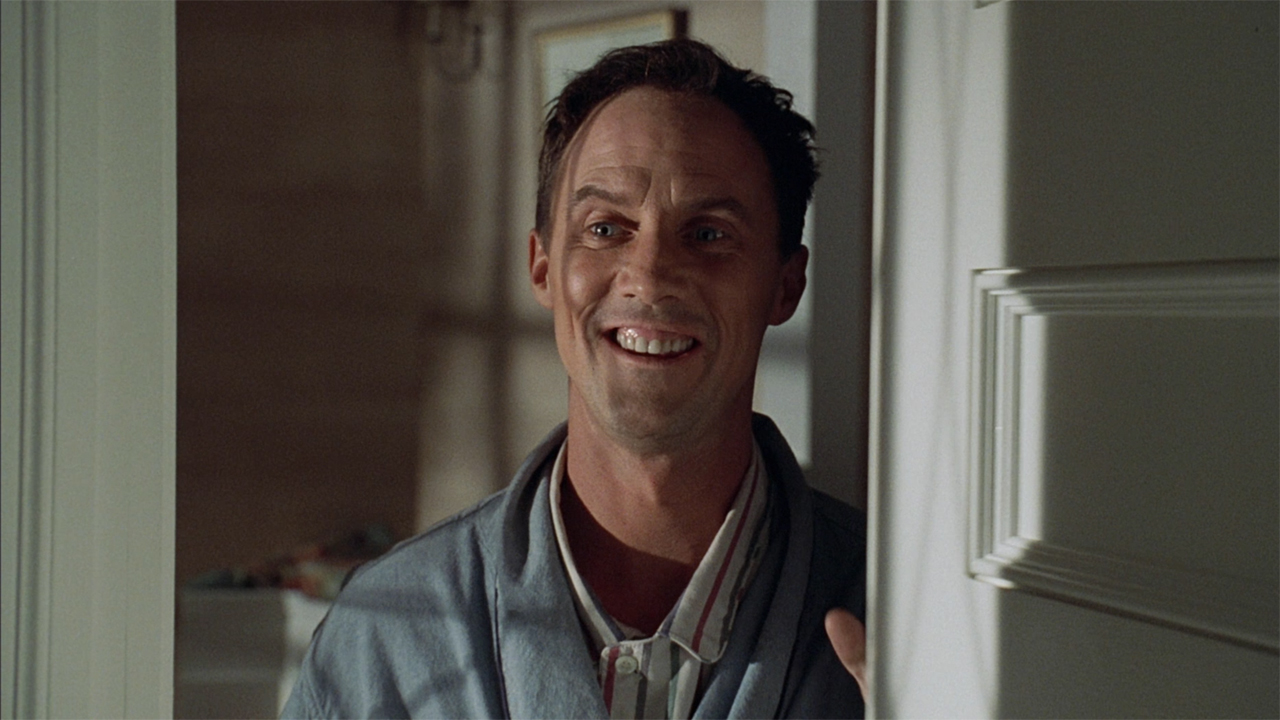
How Tom Holland’s Thinner Differs From The Book
The knowledge that Tom Holland’s script for Thinner went through as many as 15 iterations might suggest that the movie bears little resemblance to the Stephen King source material – with the idea being that each new draft would move the story further away from the novel – but that isn’t actually the case. Just like how Holland executed immense faithfulness in the making of The Langoliers, Thinner hones close to the book it is based on, albeit with some key deviations in addition to some very minor ones – like Heidi (Lucinda Jenney) giving Billy (Robert John Burke) a blowjob in the car instead of a handjob.
One change that sticks out in the wake of that plot description above is the narrative structure of the piece. Stephen King experimented with an in medias res approach to his book, with exposition about the plot’s inciting incident offered throughout scenes in the first act. The movie simplifies things and flattens it out to play linearly, which is a better choice for the medium where you aren’t granted the same kind of access to the internal thoughts and memories of the protagonist.
Two other alterations alter the fates of two key supporting characters in Thinner, with Tom Holland saving the life of one who dies in the book, and killing another who lives.
The former is Richie 'The Hammer' Ginelli (Joe Mantegna), the gangster who teams up with Billy Halleck after the emaciating lawyer tracks down Tadzu Lempke (Michael Constantine) and his Romani camp. Representing Billy’s “Curse Of The White Man From Town,” the mobster terrorizes Lempke’s community in hopes of getting them to remove the curse, and in this effort he is successful – though he does pay a price. The movie sees Ginelli walk away from the whole situation immaculate, but Stephen King’s version has Billy return from his truce meeting with Lempke, cursed strawberry pie in hand, to discover only his friend’s severed hand in the driver’s seat of Ginelli’s car. A police report included in the book notes that his body is discovered shot with a large-caliber weapon (understood to be a slingshotted ball bearing) and with “PIG” written across his forehead in blood.
The character that is killed in the film but lives in the novel is Dr. Michael Houston (Sam Freed), whose death in the adaptation is implied in the final moments when Billy invites him into his house to share what remains of the cursed pie (having long suspected that the doctor has been carrying on an affair with Heidi). This is different than the book, which sees Billy eat the pie alone after learning that he has accidentally poisoned his innocent daughter (Bethany Joy Lenz) in addition to purposefully murdering his wife.
What’s interesting to note about this change, though, is that it was one made against Tom Holland’s wishes. The first cut of Thinner had the exact same ending as Stephen King’s version, but test audiences rejected it because they didn’t want to see Billy lose after going through his horrifying journey. Reshoots actually caused the film to miss its scheduled release date – moving it from May to October of 1996 – and in retrospect it would be hard to argue that the change in any way helped the general response to the feature.
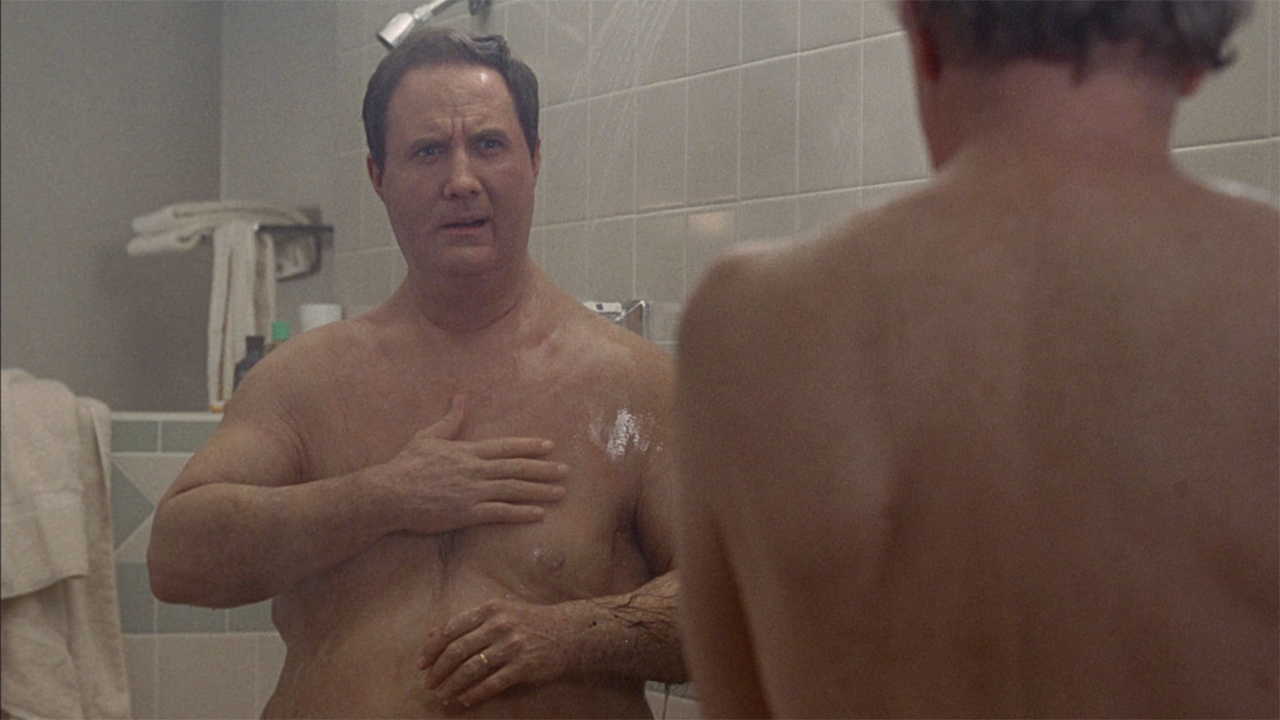
Is It Worthy Of The King?
Thinner is arguably the most “Stephen King” of all the Richard Bachman books, but it still possesses all the hallmarks of the alter ego – principally the pitch black sensibilities echoing a deeply cruel world. The book’s King-ness comes from its doses of wry humor to balance out the extreme cynicism, at one point even cutely giving himself a pair of shout-outs after Billy tells Dr. Houston his theory about the curse (the doctor remarks that it’s an idea that “sound[s] a little like a Stephen King novel.”
Tom Holland’s film doesn’t capture that subtle sardonic tone, and it is its downfall. Like the book, there isn’t a likable character in the story, but where the book has an edge that suggests an awareness of this fact, it’s missing in the adaptation, and it proves to be a crucial ingredient. This is particularly true in regards to offsetting a number of insensitivities, as there is a fair amount of misogyny and the use of some gross stereotypes in the portrayal of Romani culture. Needless to say, none of this has helped Thinner age well.
The singular pure accomplishment of the film is the physical portrayal of Billy Halleck’s extreme weight loss journey, with the makeup department including the talents of Greg Cannom (Vice, Mrs. Doubtfire, Bram Stoker’s Dracula) and Vincent J. Guastini. There are moments where the prosthetics are very visible – the most notable being the bold sequence early in the film where Billy is shown taking a shower – but the slow progression of pounds falling off the protagonist is pure movie magic.
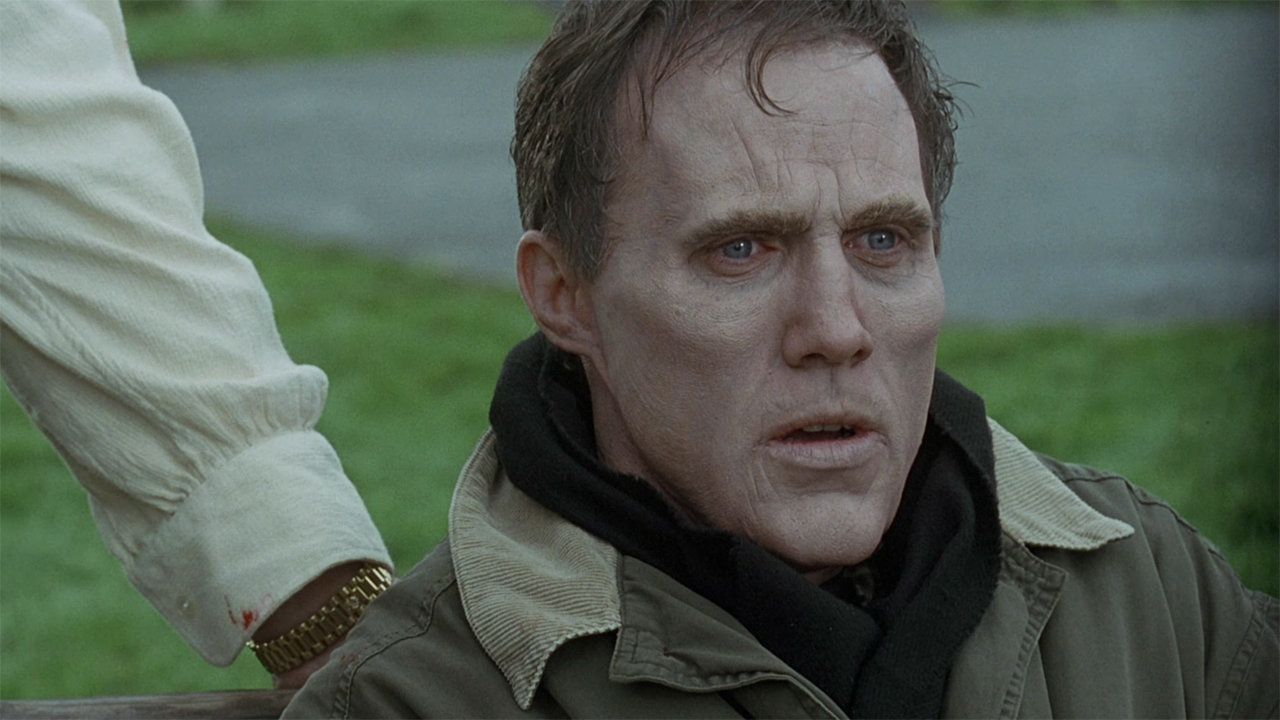
How To Watch Tom Holland’s Thinner
At present, Tom Holland’s Thinner actually has the distinction of being one of the most easily accessible Stephen King adaptations, as it can be found on a number of services. Those of you who are into physical media collection can purchase the Blu-ray (which was produced by Olive Films in 2012), but there are also digital options aplenty. The horror movie is presently available to stream instantly if you have subscriptions to Paramount+, Hulu, Philo, and/or Epix, and you can find it available for rent or purchase via Amazon, Google, Vudu, or Apple.
Coming up next week on Adapting Stephen King is another landmark title in the catalogue, as I’ll be jumping to the year 1997 and examining the first ever Stephen King remake – specifically Mick Garris’ miniseries version of The Shining. It’s obviously a project with a lot of history, so look for the column in the CinemaBlend TV section come Wednesday, and in the meantime you can discover previous installments by clicking through the banners below.







Eric Eisenberg is the Assistant Managing Editor at CinemaBlend. After graduating Boston University and earning a bachelor’s degree in journalism, he took a part-time job as a staff writer for CinemaBlend, and after six months was offered the opportunity to move to Los Angeles and take on a newly created West Coast Editor position. Over a decade later, he's continuing to advance his interests and expertise. In addition to conducting filmmaker interviews and contributing to the news and feature content of the site, Eric also oversees the Movie Reviews section, writes the the weekend box office report (published Sundays), and is the site's resident Stephen King expert. He has two King-related columns.










